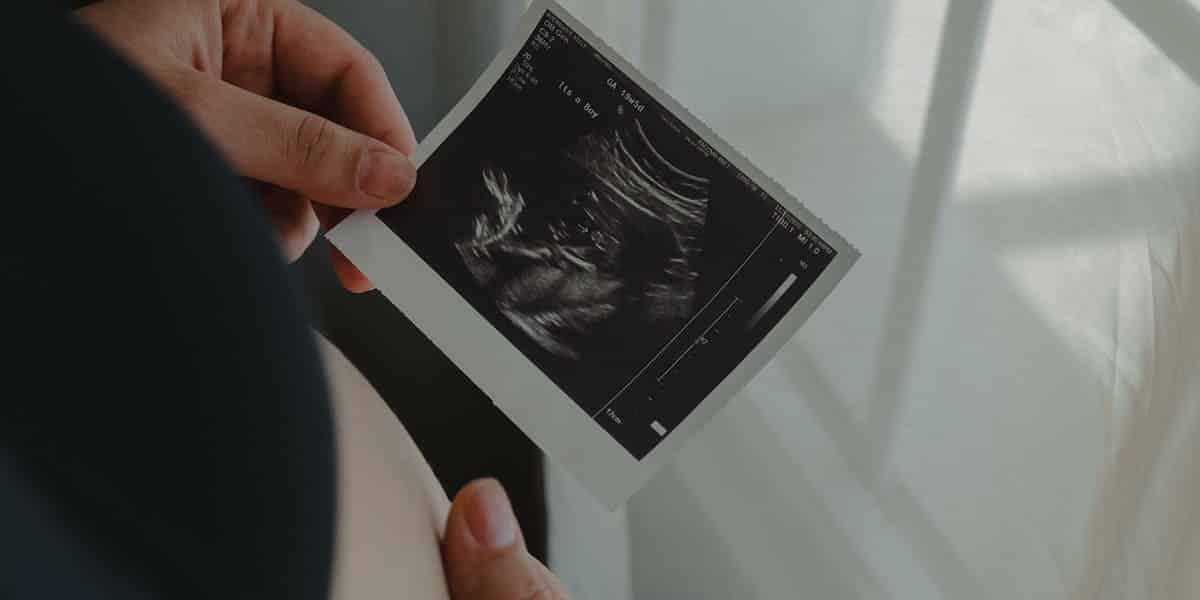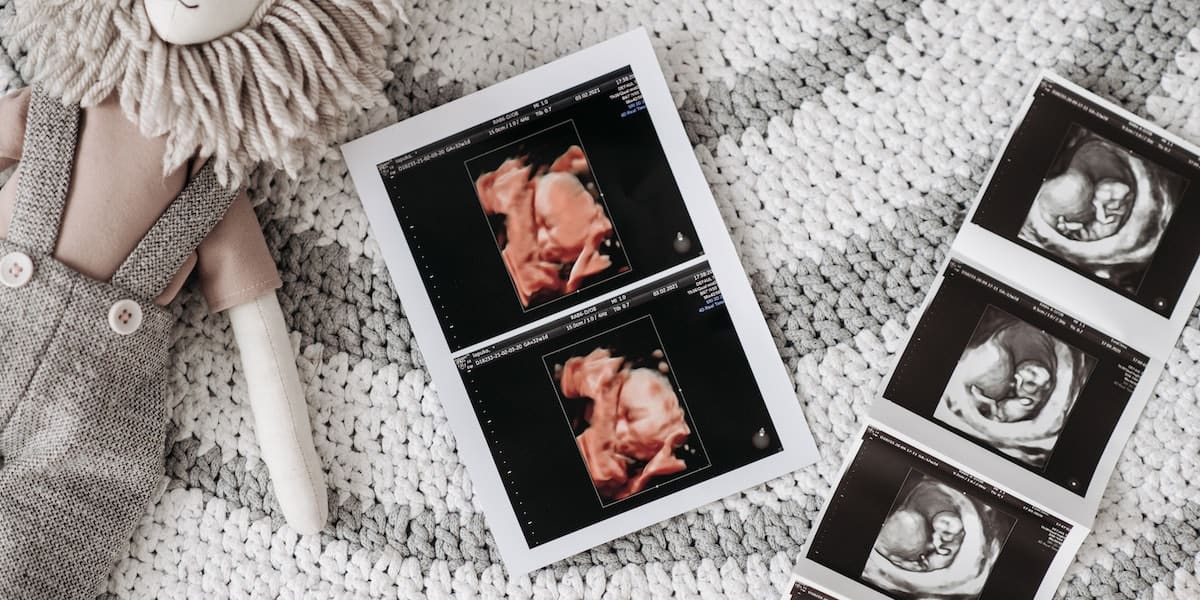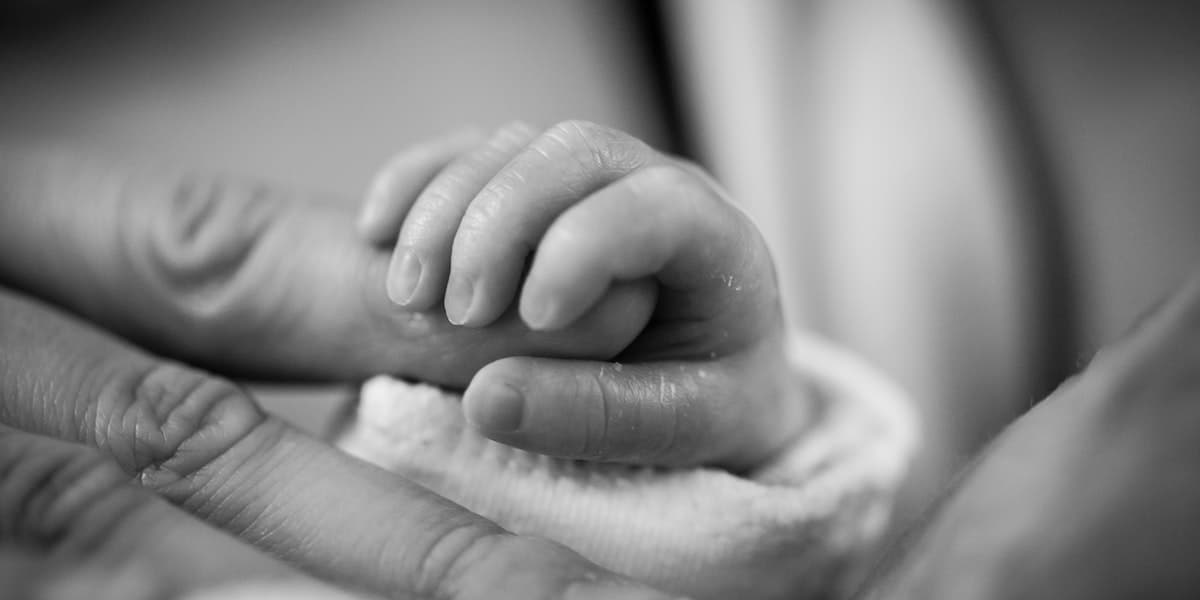Hearing your baby’s first heartbeat is an exciting time for mothers. But if the heartbeat disappears and reappears, the excitement can turn into worry.
There are several reasons why it can be hard to pick up on a baby’s heartbeat. In the first ten weeks of the pregnancy, the heartbeat may not be detected at all.
That can have you wondering if it is a miscarriage.
As an Amazon Associate, I earn from qualifying purchases. The links below may be affiliate links. Please read my disclosure policy for more information.
How is the baby’s heartbeat detected?

Before using equipment to listen for the baby’s heartbeat, the midwife will test your pulse and then check the baby’s heart rate. This allows them to distinguish between the two.
Your baby’s heartbeat is then monitored by one of two methods.
Intermittent Auscultation
With intermittent auscultation, your baby’s heartbeat is monitored at regular intervals. The monitoring is done using either a stethoscope or a Doppler scan.
It is the main method used for mothers who have no prior health issues and there are no complications in the pregnancy.
Electronic Monitoring
A cardiotocograph machine (CTG) prints out your baby’s heartbeat. The heartbeat is detected using sensors that are attached to your abdomen by elastic bands.
At times, it can be difficult to monitor the baby’s heartbeat this way. If there is an issue around this, the midwife may use a scalp clip to attach to the baby’s head while you are in labor.
Why does the heartbeat disappear and reappear?
The monitoring of your baby’s heartbeat can be like a rollercoaster ride. The ups and downs occur as the heartbeat appears and then disappears again.
It can add a level of stress and worry to any expectant mother.
There are some reasons why the heartbeat plays its game of peekaboo.
The ultrasound misses the beat

Doppler’s are good at picking up a heartbeat anywhere between weeks 8 to 10 of the pregnancy. But this type of monitoring isn’t foolproof.
It can miss picking up a heartbeat in the first several weeks since inception.
A transvaginal ultrasound will give you a better result with monitoring the baby’s heartbeat in the initial weeks of your pregnancy.
Your date is wrong
You may think you are in week 8 and the scan doesn’t detect a heartbeat. Panic sets in as you wonder if your baby is okay.
It is possible that you merely got the date incorrect. You are still in week 7 with a few days to go before you enter the eighth week.
Arrange to visit your doctor again the following week to get monitored again.
The placenta is interfering with the scan
If your placenta is growing in the front of your uterus, it can make detecting your baby’s heartbeat harder to detect.
That’s because the Doppler detects your own blood flow through the placenta.
As you progress past weeks 9 and 10 of your pregnancy, this won’t be an issue. Your baby’s heart is growing which makes detecting the heartbeat easier.
Your uterus is tilted
20 percent of women have this issue. In most cases, it won’t affect your health or the pregnancy. Because it is so common, most medical professionals refer to it as a normal variation.
The cervix and uterus are tilted towards the spine.
For pregnant women, the baby is leaning towards your back rather than close to the abdomen. This position can make it a little harder for the Doppler to monitor your baby’s heartbeat.

The baby stops and starts in their growth
There have been rare instances in which the baby will not grow and then starts again. This on-and-off growth can affect the monitoring of the baby’s heartbeat.
If your last scan picked up a heartbeat and the next scan didn’t, this is a serious issue. You may have to undergo a dilation and curettage.
Sadly, if the baby has stopped growing in the first few weeks of the pregnancy, it’s a miscarriage (or a stillbirth if you are well along in the pregnancy). Something devastating for any expectant mother to bear.
Factors that can cause your baby’s heart to stop
A fetus’ heart stopping can be the result of several issues. The usual procedures to deal with this situation are a D&C or an Evacuation of Retained Products of Conception.
This can generate a lot of grieving from the mother and questioning as to why it happened. Understanding what caused your baby’s heart to stop won’t change the situation, but may help as part of dealing with the grief.
Abnormal Chromosomes

Your egg or the father’s sperm may have carried an unusual chromosome. It could also be that when the zygote started to divide, there was an anomaly in the chromosomal information.
These may have your body abort the conception or the fetus if it detects something wrong.
Your baby is caught up in the umbilical cord
Fetuses being twisted in the umbilical cord is common. 12% of deliveries have this phenomenon and the midwife carefully untwists the cord.
However, it’s not possible to do so when the baby is still in the womb.
An umbilical cord that gets tangled around your baby’s neck can affect the blood flow. A reduction in the amount of blood and oxygen to the heart can cause it to stop.
Reduced blood supply
A blood clot in your placenta or along the umbilical cord affects the blood supply to your baby. If the fetus isn’t getting the blood it needs then its heart can stop.
Low levels of progesterone
Progesterone is supplied by the ovaries during the initial stages of pregnancy, then the task gets handed over to the placenta. It plays an important role for both the mother and fetus.
One of the benefits for the mother is that progesterone helps with the growth of the uterus. The uterus is prevented from having contractions that can lead to a miscarriage.
For the fetus, progesterone is a key player in healthy growth. Low levels of progesterone can result in developmental issues for the fetus.
One of these problems can be that the heart can grow like it should and may stop.
Seek a second opinion

Missing the heartbeat of your baby during a monitor can be the result of human error. Doctors do their best, but they can make mistakes.
If you are told that your baby’s heartbeat has stopped, try and remain calm.
There are accounts online of mothers who have been giving this type of shocking news. Then they went to another doctor and were relieved when their baby’s heartbeat was detected.
Get support
If you are a mother who has had the tragedy of losing an unborn child, it can be a time of soul-searching. The questions are running constantly through your head and you wonder what you could have done to prevent the situation.
The guilt can be strong. Bottling up your emotions is never a healthy option.
Seek support from other mothers who have been through the same situation. Lean on one another.
There are plenty of groups available such as International Stillbirth Alliance, The Miscarriage Associaton (this is a UK-based organization), and Sands (another UK organization)
